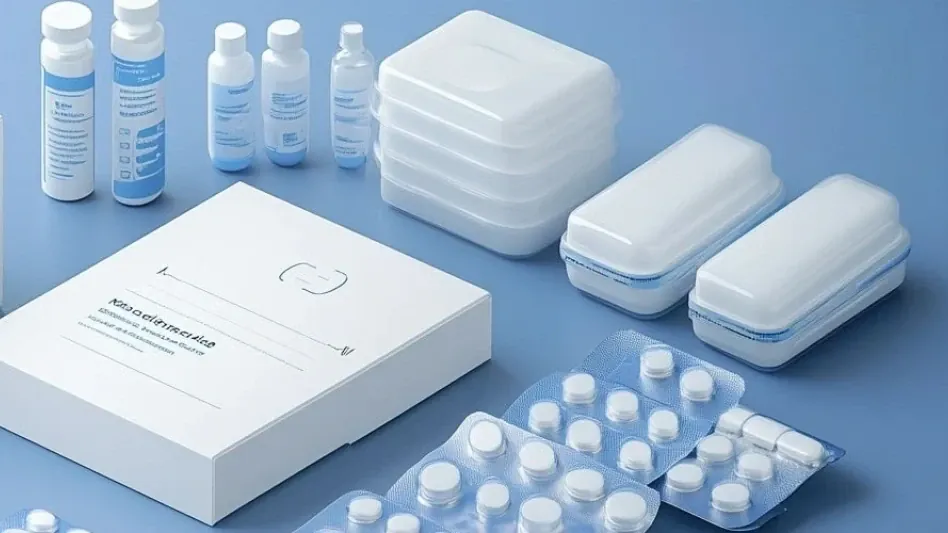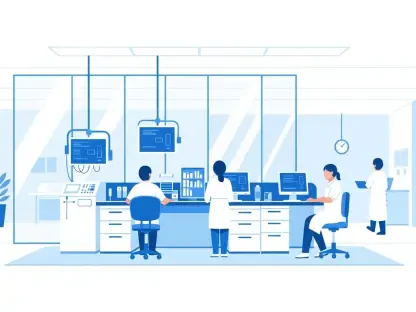The logistics of medical devices is a complex, high-stakes operation that demands precision, timeliness, and compliance with stringent regulations. To address these challenges, the industry is increasingly adopting smart packaging solutions. These advanced technologies are not only enhancing efficiency but also improving safety, reducing costs, and supporting sustainability.
Smart packaging solutions leverage Internet of Things (IoT) technologies, 5G networks, and sustainable materials to address traditional pain points in medical device logistics. Here’s how these innovations are reshaping the landscape.
Enhanced Visibility and Error Reduction
Smart packaging solutions, such as connected containers, have revolutionized how medical devices are tracked throughout their journey. These containers come equipped with sensors that provide real-time data on the location and condition of the contents. This technology allows logistics professionals to monitor shipments at every stage, ensuring they reach their destinations without delays or issues.
Detailed insights on factors like temperature, humidity, and vibration are crucial for medical devices, which often require stringent conditions. When anomalies are detected—such as a temperature spike that could compromise device integrity—logistics teams can take immediate corrective actions, thus reducing the risk of costly damages.
Additionally, better visibility into the logistics process minimizes the chances of human error. With automated tracking and detailed reporting, the likelihood of devices being lost or misplaced drops significantly. This not only enhances operational efficiency but also boosts the reliability and trustworthiness of medical supply chains.
Cost-Efficiency
One of the most compelling benefits of using smart packaging solutions is the potential for cost savings. Integrating 5G and IoT technologies into container tracking can save medium-sized shipping companies up to $1.4 million annually on maintenance and repair expenses. These savings stem from reduced errors and damages, which often result in expensive remedies and replacements.
Additionally, by preventing losses and ensuring timely deliveries, smart packaging significantly reduces operational disruptions, further contributing to cost efficiency. The use of automated systems for monitoring and reporting also lowers labor costs, as fewer personnel are needed to track and manage shipments manually.
Companies that adopt these technologies can reinvest the savings into other critical areas such as R&D, ultimately driving innovation and competitiveness within the healthcare sector.
Waste Reduction and Reusability
The healthcare industry is notorious for its reliance on single-use materials, contributing to substantial waste. However, there’s a growing demand for sustainable solutions, and smart packaging is playing a pivotal role in this shift. Companies are increasingly turning to reusable packaging options like stainless-steel supply trays and polypropylene boxes, which drastically cut down on resource consumption and landfill waste.
By choosing long-lasting materials and opting for reusable packaging, organizations can significantly reduce their environmental impact. This shift not only addresses regulatory pressures but also aligns with the global push towards greener practices, making the healthcare sector more sustainable.
The integration of smart technologies also means that these reusable packages are easily tracked and managed, ensuring they are returned and reused efficiently. This contributes to a circular economy within medical device logistics, where materials are continuously cycled through the supply chain rather than disposed of after a single use.
Regulatory Compliance
Regulatory requirements in the medical device industry are stringent, necessitating unique device identifiers (UDIs) for tracking and safety. Smart packaging solutions facilitate compliance by embedding all necessary identification information into the packaging, reducing the likelihood of mix-ups and enhancing patient safety.
An example is the EU’s Medical Devices Regulation, which demands detailed tracking and identification of medical devices. Similarly, U.S. regulations require precise labeling and traceability of medical products. Smart packaging technologies effortlessly integrate these requirements, ensuring that companies remain compliant and can easily manage recalls if necessary.
The use of automated systems to embed UDIs also removes the risk of human error in labeling and tracking, further safeguarding against regulatory breaches. This adherence to compliance not only protects patients but also shields companies from legal repercussions and financial penalties.
Technological Integration and Innovations
Handling the logistics of medical devices is a complicated, high-stakes endeavor that requires precision, timeliness, and adherence to strict regulations. To meet these demanding challenges, the medical device industry is increasingly turning to smart packaging solutions. These cutting-edge technologies are not only making operations more efficient but are also enhancing safety, cutting costs, and promoting sustainability.
Smart packaging incorporates Internet of Things (IoT) technologies, 5G networks, and eco-friendly materials to address the traditional challenges of medical device logistics. For example, IoT technology helps track and monitor devices in real-time, ensuring they reach their destination without issues. The use of 5G networks further streamlines this by providing fast, reliable communication between devices and logistics systems, enabling better coordination and delivery accuracy.
Additionally, sustainable materials used in smart packaging play a vital role in reducing the environmental impact. As medical devices often have strict sterilization and handling requirements, utilizing materials that are both effective and environmentally friendly is a win-win for the industry.
Overall, the integration of these innovations is revolutionizing the logistics of medical devices. The synergy between advanced technologies and sustainability is not just a trend but a significant step forward in making medical device logistics more reliable, cost-effective, and environmentally conscious.









